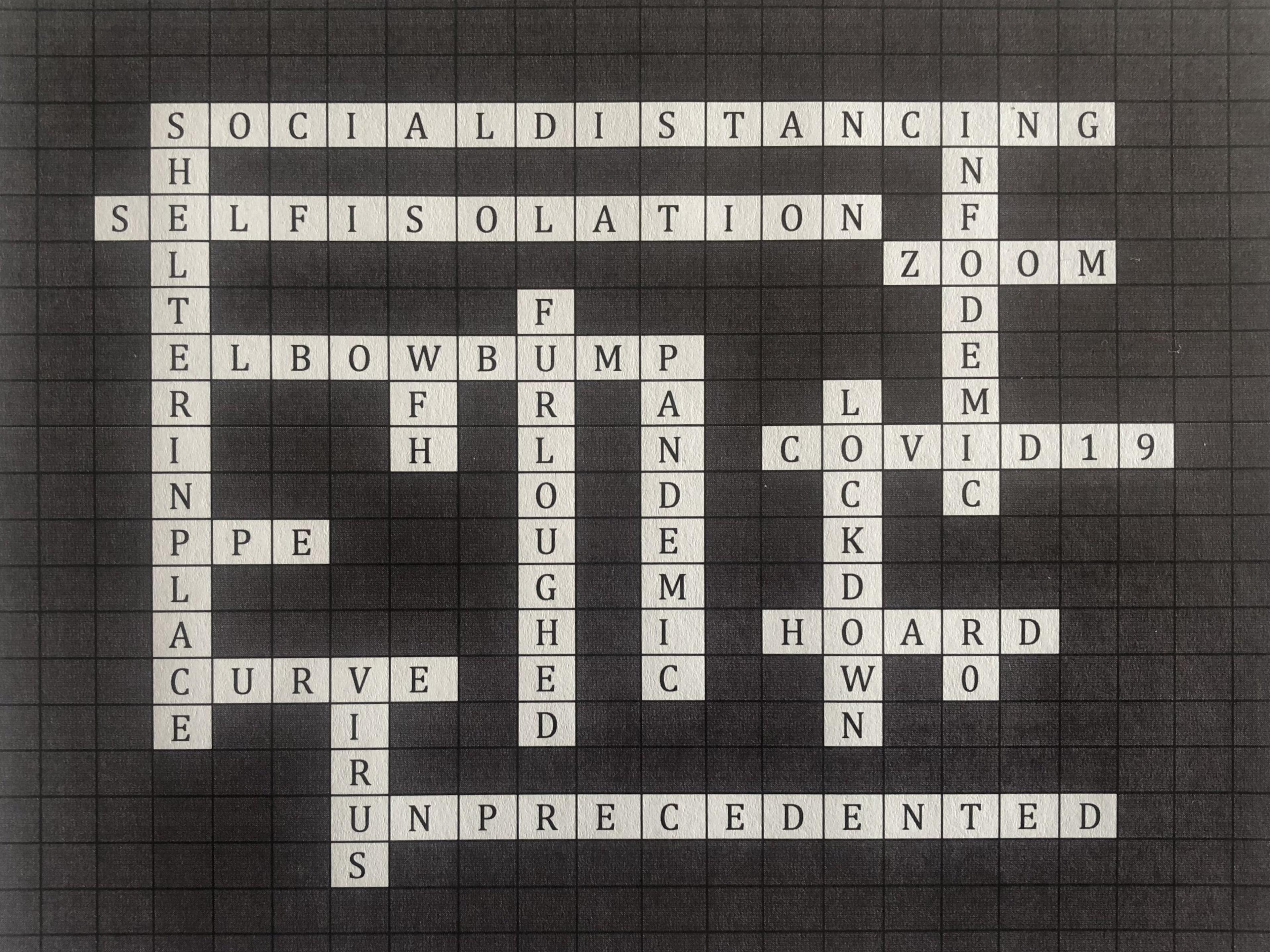OED expands to reflect Coronavirus
- Published

New words and new uses of words related to the pandemic have entered the English language in recent weeks
Language, like the humans who deploy it, has an organic quality: it grows, decays, ages, withers, and evolves.
The Oxford English Dictionary, which is the definitive measure of the English language, issues updates quarterly. In exceptional circumstances, it will publish special updates outside of this rhythm.
Coronavirus is just such a moment.
All of the new entrants, listed below, are related to the pandemic. Crucially, only one is a neologism: COVID-19. The rest warrant entry through the new contexts in which they've been used.
COVID-19
Elbow bump
To flatten the curve
Infodemic
PPE and personal protective equipment
R0
Self-isolate. self-isolated, self-isolation
Self-quarantine, self-quarantined
Shelter in place
Social distancing
Social isolation
WFH
For instance, if I'd said "WFH" in an out-of-office email message before Christmas, you might have guessed that it stood for "Working from Home". You might have Googled it, and found that's what it stood for; unless you were interested in the work of another WFH, the World Federation of Hemophilia.
But it wasn't officially a part of the English language. Until now.
Coronavirus actually entered the OED in 2008. Most of the new entrants, like "self-quarantine", "social distancing", "Personal Protective Equipment" and "elbow bump", are obvious in their meaning.
With others, the wonder is that it's taken until now for them to make it into the OED. "To flatten the curve" falls into this category. It may be some time yet, however, before "to squash the sombrero" makes it in.
Interestingly, the OED researchers found many of these words had entered relatively common use in previous health emergencies, from swine flu and SARS to the AIDS in the 1980s. Though not common enough for them to enter the OED - until now.
Technology, and specifically communications technology that enables the dissemination of ideas, is often the key determinant of how fast a language changes. Over half a millennium ago, Johannes Gutenberg's printing presses had the effect of putting a giant boot on the gas pedal of history, spreading ideas and words and thought further and faster than ever before.
Social media has a similar effect today. It is going too far to say that any of these new entrants owe their provenance to social media. But the sheer volume of activity on social media certainly adds to the dissemination of words, and creates new contexts from which they derive meaning.
What happened very fast in the age of Gutenberg happens almost infinitely faster in the age of Zuckerberg.
In the age of fake news, another entrant - "infodemic" - is going to come in handy for the BBC's media editor. The OED defines "infodemic" as "a proliferation of diverse, often unsubstantiated information relating to a crisis, controversy or event, which disseminates rapidly and uncontrollably through news, online and social media, and is regarded as intensifying public speculation and anxiety."
Until now I'd been using a synonym for that phenomenon: "Twitter".
If you're interested in issues such as these, please follow me on Twitter, external or Facebook, external; and also please subscribe to The Media Show podcast, external from Radio 4. I'm grateful for all constructive feedback. Thanks.
